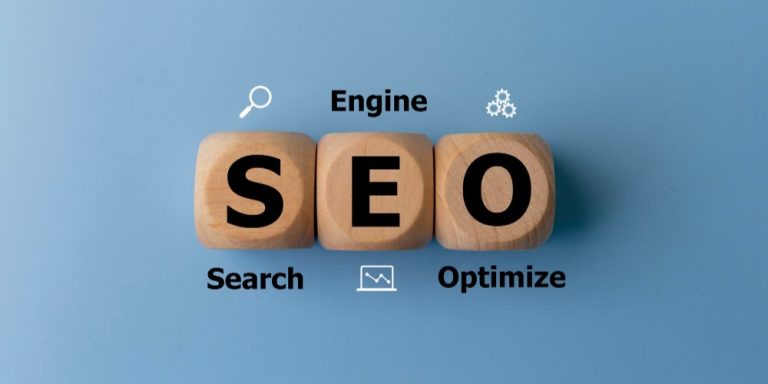What is SEO in Business?
SEO or search engine optimization is one of the most crucial aspects of online marketing. By practicing proper SEO your business can grow, and improve its site's visibility and ranking on search engine results pages (SERPs).
By implementing search engine optimization strategies, companies can attract more organic traffic from relevant search queries, leading to increased brand awareness, website traffic, and ultimately higher conversion rates. From this article, you'll learn what business SEO is, how to shape your SEO strategy, and why Publuu flip books can help you improve your SEO efforts!
What is SEO?
So what does SEO stand for? As the name implies, Search Engine Optimization (SEO) is the process of optimizing the content, structure, and technical aspects of a website to make it more relevant and user-friendly to Google and other search engines. Search engine programs, called "bots" or "spiders" archive your site's content and, based on relevant criteria, rate how well it is suited to a user's query.
These search engine criteria include using appropriate keywords, quality content, your site's loading speed, and backlinks from reputable sources. If your site is rated better than others, in these categories it will appear above others in Google or Bing search results. For instance, if you type in "board game store" in your city, the Google search engine will refer to its database, check the sites to rate them in order of their quality and usefulness, and display the so-called organic search results.
Well-optimized sites are more likely to appear high in users' search results, increasing the likelihood of clicks, website traffic, and ultimately conversions. Typically, users click on the first result in a search engine - the higher you rank, the better for you! You want to have as high a position in search engine results as possible since this boosts your sales in the long run. SEO success means marketing success!
Why SEO matters in business?
Good SEO helps companies attract more organic traffic from search engines based on relevant search queries, expanding their reach and customer base. If you're visible, people even remember you passively by seeing your company name frequently on the search engine results page. If you're recognizable, this will be crucial to your SEO success.
Higher rankings and visibility in search results increase brand recognition and establish companies as thought leaders in their industry. Search Engine Optimization also has a positive impact on the entire user experience, since well-designed pages are clear and easy to navigate. Search engines analyze sites and monitor their technical optimization, so design and programming are as effective as content marketing strategies!
SEO offers a cost-effective way to generate leads and increase sales, often yielding better returns on investment compared to traditional marketing channels. Many online companies rely completely on organic traffic, ignoring paid advertising and advertising outside the Internet. A local business might create a Google Business Profile and link it to a website and still receive a significant amount of interest.
SEO lets you also distinguish yourself from the competition to gain more hits and allows you to gain more competitive advantage. There are various SEO strategies, from keyword research and technical optimization to relying on videos and content marketing. Sometimes your Internet presence is how you distinguish yourself from the competition - and that translates to search engine rankings.
Key components of SEO
SEO efforts require a lot of work and improvement, but some crucial areas can improve your core web vitals. You can learn more about improving your position in organic search by reading our guide to digital marketing.
1. Keyword research
Identifying relevant keywords that align with your target audience's searches is essential to attracting organic traffic and improving your visibility in search results. Using SEO tools like answer the public or Google Keyword Explorer in keyword research will help you focus on the optimal SEO strategy.
When you work on keyword optimization, keep in mind what people search. General terms are very competitive but specific terms can be very useful for small business SEO. Highlight keywords to emphasize that your content is about these concepts. Remember, however, that keyword stuffing will hurt your site so use the keywords organically when you create content.
2. On-Page optimization
On-page optimization means adjusting all the aspects of your site architecture that can influence your position in search engines. Proper SEO strategy involves adjusting your website content, meta descriptions, and headings to include target keywords and boost the search engine relevance.
Your SEO efforts need to take in the site architecture (longer sites are better ranked by search engines), the color and readability of headers, or how you use title tags and other aspects. A search engine can judge if you use text in image descriptions to convey their meaning to the people unable to see, for example.
Using Publuu flipbooks helps you with digital marketing - linking to beautifully designed PDF files in the format of HTML-5 flipbook lets you boost your search engine optimization. It diversifies your content, simplifies access to your texts, and showcases your catalogs.

3. Technical SEO
Technical SEO encompasses ensuring that the technical aspects of the site, such as page load speed, mobile responsiveness, and structured data markup will influence. The human user may ignore many errors but bad technical design still affects the user's experience.
Page load times, for example, might influence not just the position in search results. Google Analytics can measure also time users spend on your site. If someone leaves before the site fully loads, this might influence your position in Google and other search engines!
4. Content creation
Creating high-quality, informative, and engaging content that relates to users' search intent and builds authority. Google's bots, for example, can distinguish between correct and false information and rank encyclopedic content higher than fan pages.
In modern digital marketing, content is king - interesting texts, videos, and images are easy to share. Search engines always rate useful content highly, and it's linked to by many users. If you want to learn more about how to create digital content, check out our guides in our Knowledge Base.
SEO strategy can involve Publuu flipbooks. They can help you integrate content into beautiful simple flipbooks, and you can create content as digital magazines or catalogs.
5. Link building
Gaining backlinks from reputable websites improves a site's credibility and authority, boosting search rankings. That's why many people exchange links to mutually link different sites and get higher in the search engine results.
SEO tools like moz.com or Google Search Console help you learn who links to your site and how to boost the quality of your backlinks. Experts use their SEO knowledge to build a network of sites that link mutually to each other from various domains.
SEO best practices
Stay updated with algorithm changes
Search engine algorithms often evolve, so companies need to adjust their SEO strategies to stay in line. In 2024, traditional algorithms will certainly be supplemented by artificial intelligence, so the main digital marketing efforts should focus on good, original content instead of keyword spamming.
Focus on quality content
High-quality, relevant, and engaging content is the cornerstone of a successful SEO strategy. Not only do they make people link to interesting content on social media and their blogs, but they also rank better by search engines. Remember, content is king, and machine-generated content is not good content.
Optimize for mobile
In the modern decade, mobile devices are the main way to access the Internet, so websites need to be mobile-friendly to rank well in the search engines. Old, frame-based website design can make them unsuitable for small screens, so it's worth redesigning your website. Many people search for local businesses using their phones, so local SEO also can mean a lot for your search engine optimization.

Use analytics
Regular monitoring of site analytics provides valuable insights into user behavior and helps improve SEO strategies. Having access to Google Analytics and Keywords Planner allows you to check the appropriate level of SEO, as do professional tools like moz.com and ahrefs.
Conclusion
SEO stands for search engine optimization, but it's a more complicated process than just adding keywords related to your brand. SEO is an ongoing process that requires regular monitoring and improvement.
By following the tips in this article, businesses can ensure that their SEO strategies are effective and that they are attracting the right type of traffic to their website.
You may be also interested in:
10 Tips for Social Media Marketing
The Best Online Business Ideas





